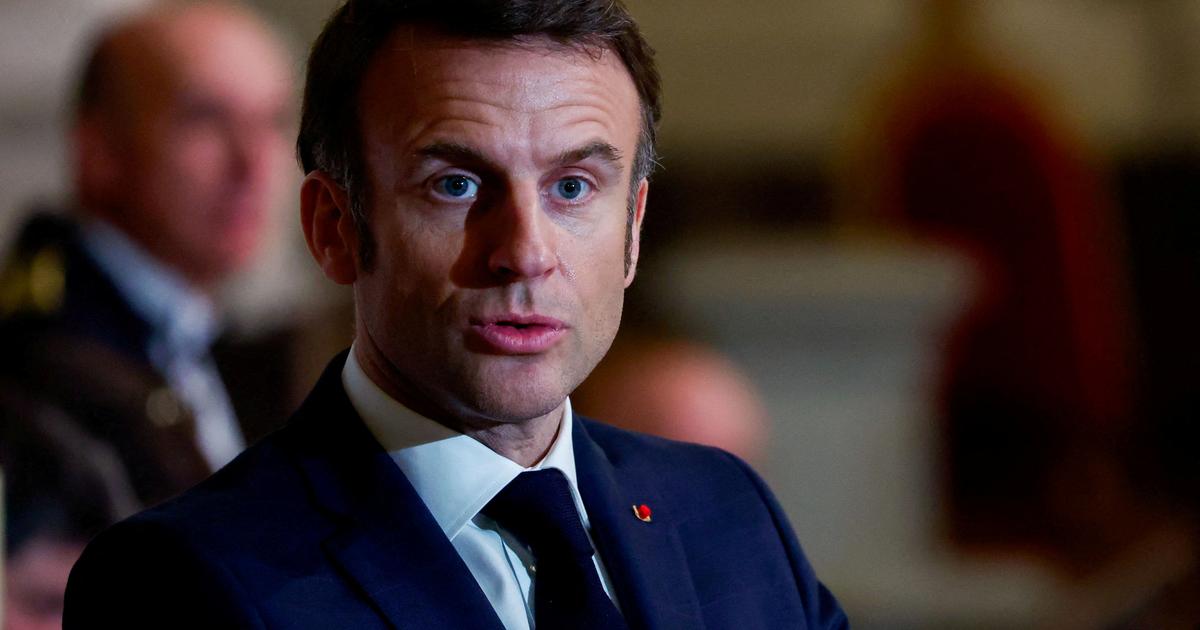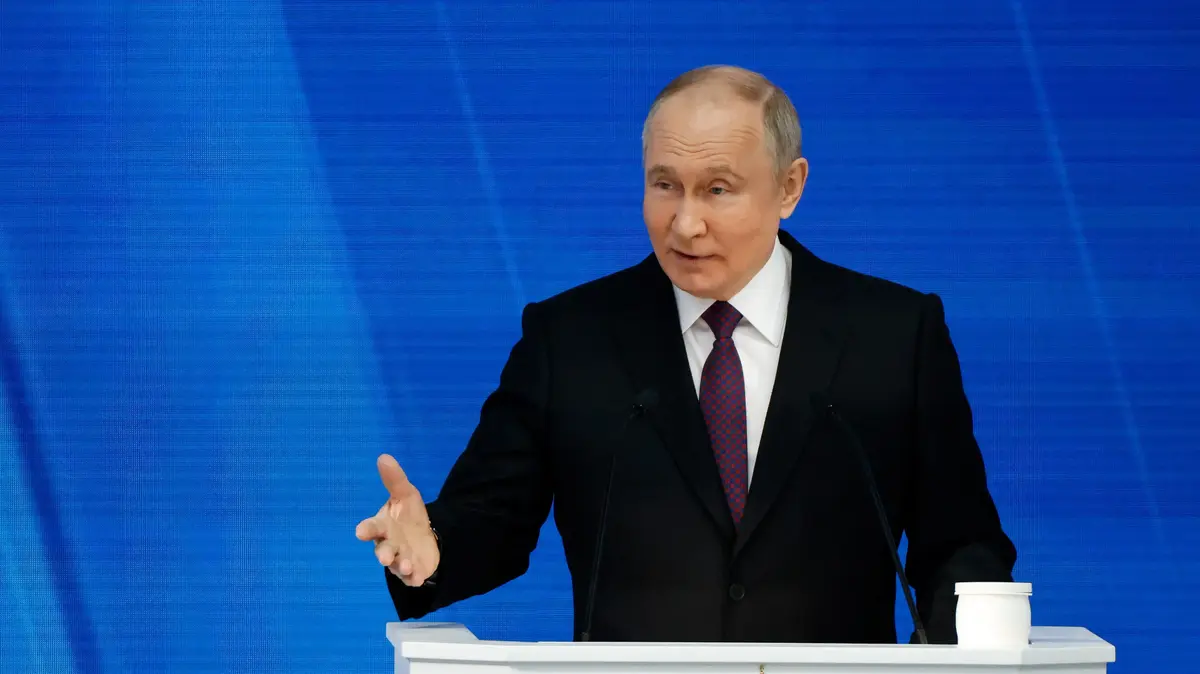Talking to Ken Follett is exactly how you imagine it.
The bestselling author has just published his new novel "Never" - and has taken the time for an interview:
Ken Follett is a British gentleman who has a friendly, humorous and relaxed chat.
He has no reason to be nervous: the 72-year-old has been one of the most widely read authors in the world for over 40 years with his thrillers, almost all books are made into films, and so is his new novel "Never - The Last Decision" about an impending nuclear war will reliably land at the top of the bestseller lists.
In your new book, there are hardly any real bad guys, but rather well-meaning and clever people who, from their point of view, always do the right thing - but all in all things go very badly. What makes you so pessimistic?
Ken Follett:
That's how I see the situation at the moment.
I just show the threats we face.
How we deal with it is sometimes frightening.
We need to learn to get along differently and find smarter, more compassionate ways to resolve conflicts.
You see, a downright grotesque dispute between Great Britain and France over fishing rights is raging here.
The leaders of the countries insult each other instead of finding a solution.
That is significant.
And this is all about fish.
How come
Ken Follett:
Political leaders are under a lot of pressure.
There is this idea that one's own country must always show strength and should not put up with anything.
This is probably an old human reflex, but it no longer fits our world.
Especially not in a world full of nuclear weapons.
In the book you address the danger of a nuclear world war, although this scenario has pushed the public out of the way since the end of the Cold War. How did you come up with the idea of that?
Ken Follett:
I know we thought the threat of nuclear war was behind us and, especially in Europe, the number of nuclear warheads has been reduced.
And we got a little reckless.
There are more nuclear weapons today than ever before.
We are dealing with other crises, such as climate change.
But the danger posed by nuclear weapons is real and just as dangerous because it has disappeared from the radar of attention.
In the book you amalgamate various topics and also give a young African migrant a voice who wants to go to Europe. How does that fit into a thriller about an impending nuclear war?
Ken Follett:
It shows the context of our lives.
The woman has to leave Chad because the basis of life - Lake Chad - is getting smaller and smaller due to climate change.
In Europe we only see migrants from Africa, but why do they come?
Also because of our lifestyle here.
Because our consumption of resources, of fossil fuels, causes climate change.
And that in turn influences people's lives in Africa, for example.
What we do on this planet is interlinked and has consequences.
That must be clear to us.
At the beginning of the novel you refer to the outbreak of the First World War: At that time there were many clever people who did not want war, but still unleashed it because they misjudged the consequences of their actions. Do people learn nothing from history?
Ken Follett: A
lot of people don't learn anything from history and even more don't know anything about history anyway.
I don't think history repeats itself.
But there are echoes from the past.
The United States and its Western allies know that democracy cannot simply be imposed on other countries.
Nevertheless, they try again and again, as in Iraq or Afghanistan, with the known consequences.
It would be wonderful if these countries had become democracies, but only the people there can do that of their own free will.
You are almost notorious for the regularity with which you publish. How do you manage to write such extensive and well-researched books every two years?
Ken Follett:
You start at 6 a.m. and write until 4 p.m.
And I like to do it because it's the most interesting thing I can think of: writing stories that people like to read.
I can't think of anything better.
You do a lot of research, are you sometimes surprised at the things you find out?
Ken Follett:
Somewhat disappointed, as in this case with the nuclear weapons on our planet.
But above all on the subject of migration and displacement, it is far worse than I thought.
Just to find out that Lake Chad, actually an inland sea, has now shrunk by 90 percent due to climate change, shocked me.
In your book, the protagonists, including many agents, believe that they can make a difference despite adverse circumstances. It doesn't work because in a world of uninterrupted communication, secrets hardly remain secret. Is there too much information today to be able to work successfully as a secret agent?
Ken Follett:
Maybe.
But basically I believe that people who have something to hide tend to pursue bad goals rather than good ones.
So how do you prevent global crises?
Ken Follett:
In a confidential conversation and not with populist actions and with martial rhetoric such as the fish dispute between England and France.
The subject seems to be bothering you ...
Ken Follett:
It's just an example - what is happening shouldn't be possible today.
Our prime minister or Macron could say: “We don't want to let a dispute escalate over this.
Let's sit down and find a solution. ”I mean, it's all about fish!
If you are so pessimistic, can you think of something that is better today than it was before?
Ken Follett:
Actually, everything is better today than it used to be.
For example, we can now make phone calls just like that.
In the past you had to make long-distance calls, had limited time, and it was insanely expensive.
Cars were always broken.
Restaurants are much better today, medicine works wonders.
We are getting older.
The list could go on and on.
You see: I don't think that everything was better in the past.
Information about the book:
"Never - the final decision". Translated from the English by Dietmar Schmidt and Rainer Schumacher. Bastei Lübbe, Cologne, 877 pages; 32 euros.



/cloudfront-eu-central-1.images.arcpublishing.com/prisa/EH2E3EU7EVH5RNBQSZESTWOGZE.jpg)





/cloudfront-eu-central-1.images.arcpublishing.com/prisa/76J532RHISSSKLB6CEURDKTMCI.jpg)